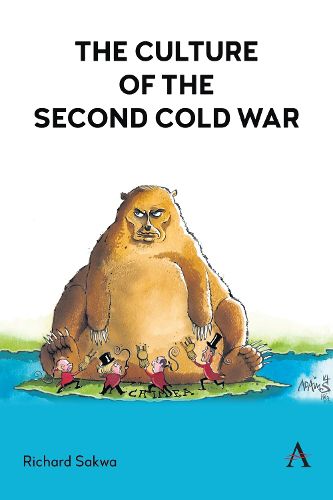Readings Newsletter
Become a Readings Member to make your shopping experience even easier.
Sign in or sign up for free!
You’re not far away from qualifying for FREE standard shipping within Australia
You’ve qualified for FREE standard shipping within Australia
The cart is loading…






The work examines the metapolitics of the Second Cold War. The focus is less on the detailed analysis of diplomatic history and processes in international politics, and more on the underlying attitudes and ideologies that have generated and sustained Cold War 2.
The work examines the definition of a Cold War and reasons for the persistence of this form of international politics, as well as the clash over interpretations of the causes of renewed conflict. The work then looks at how this Cold War is being conducted, including renewed militarism, the suppression of dissent, the decline of diplomacy and the reduced opportunities for dialogue. The instruments of the Cold War 2 include sanctions and the reinterpretation of history and memory wars.
Many of the familiar methods drawn from Cold War 1 are now applied, but in novel ways to reflect technological change as well as the different ideological contexts. The position of the global South in this Cold War is examined, and the work ends with some reflections on possible ways this Cold War could end.
$9.00 standard shipping within Australia
FREE standard shipping within Australia for orders over $100.00
Express & International shipping calculated at checkout
The work examines the metapolitics of the Second Cold War. The focus is less on the detailed analysis of diplomatic history and processes in international politics, and more on the underlying attitudes and ideologies that have generated and sustained Cold War 2.
The work examines the definition of a Cold War and reasons for the persistence of this form of international politics, as well as the clash over interpretations of the causes of renewed conflict. The work then looks at how this Cold War is being conducted, including renewed militarism, the suppression of dissent, the decline of diplomacy and the reduced opportunities for dialogue. The instruments of the Cold War 2 include sanctions and the reinterpretation of history and memory wars.
Many of the familiar methods drawn from Cold War 1 are now applied, but in novel ways to reflect technological change as well as the different ideological contexts. The position of the global South in this Cold War is examined, and the work ends with some reflections on possible ways this Cold War could end.